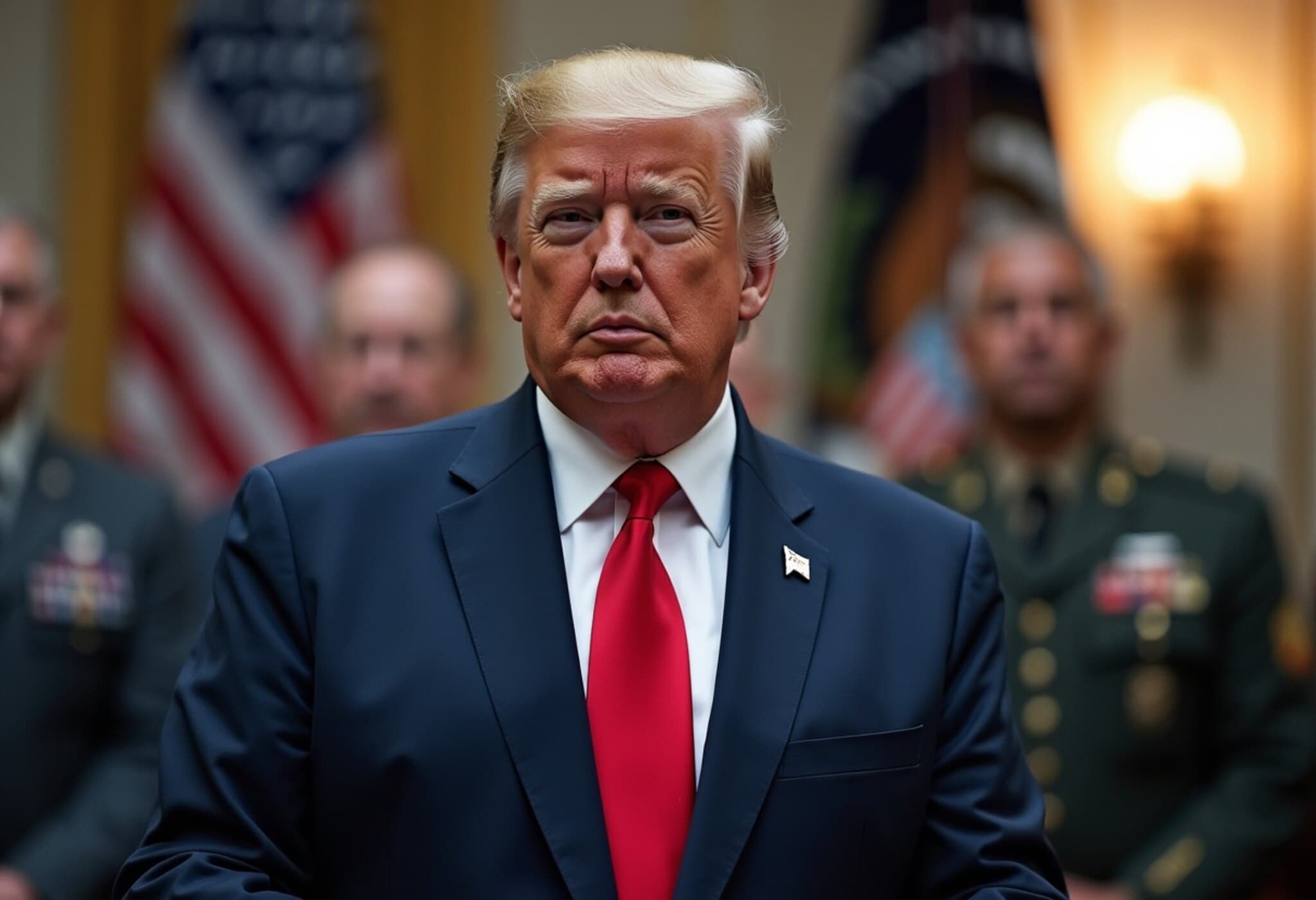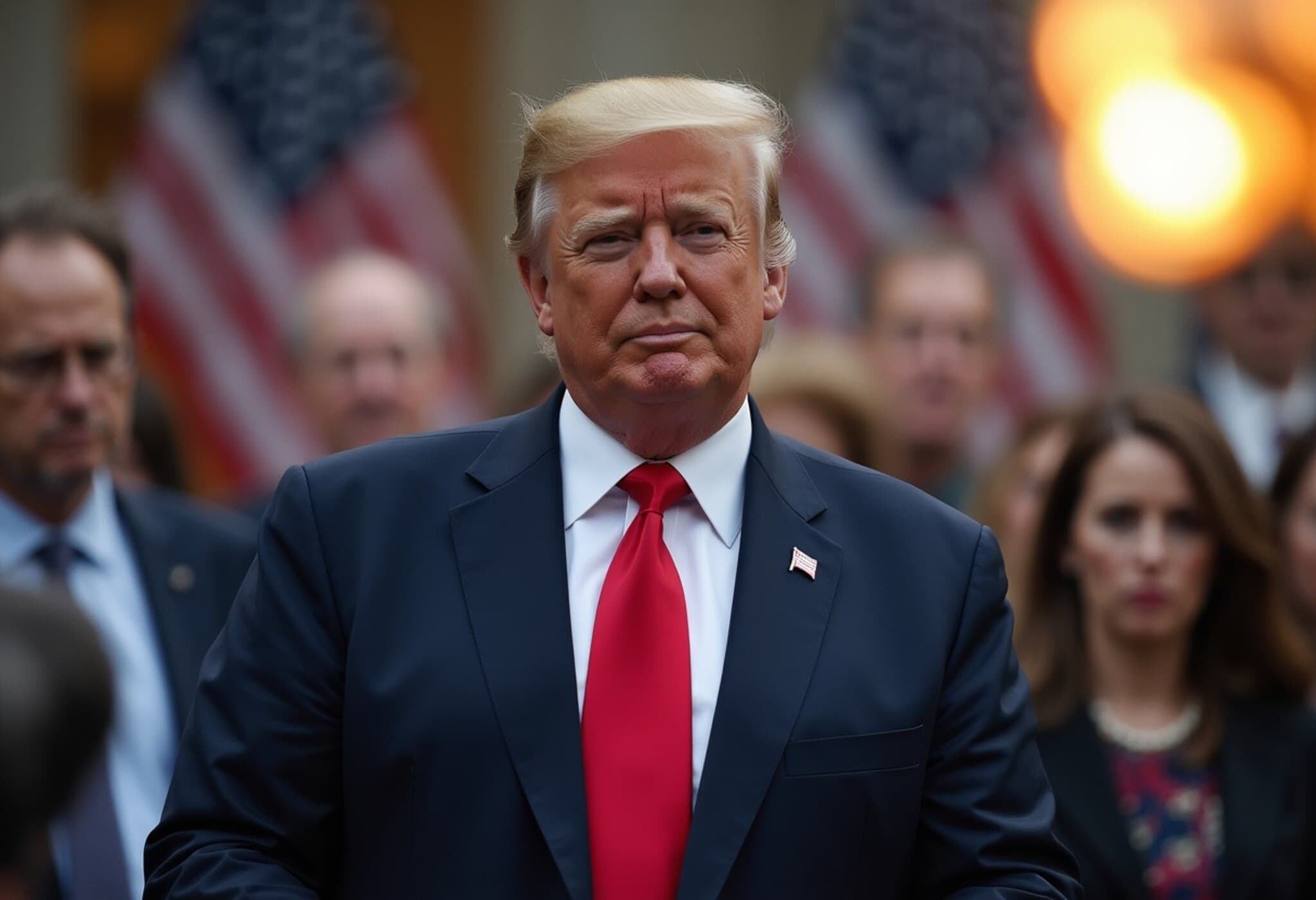Trump Administration Releases Extensive FBI Files on Martin Luther King Jr.
In a move stirring considerable debate, the Trump administration has declassified and made public over 240,000 pages of FBI surveillance records concerning Dr. Martin Luther King Jr., a decision that has reignited conversations about historical transparency, civil rights legacies, and government oversight.
Archival Release Sparks Strong Reactions
These documents, sealed for nearly five decades, were handed over to the National Archives in the late 1970s but only recently digitized and released for public viewing. Despite extensive preparation, the release has met with sharp criticism from King’s family and civil rights organizations.
Martin Luther King Jr.'s children, Martin Luther King III and Bernice King, who were 10 and 5 years old respectively at the time of their father’s assassination in 1968, expressed their deep personal anguish tied to this unveiling. They urged the public and media to approach the files with empathy, restraint, and a nuanced understanding of the historical context.
They further reiterated their enduring belief that James Earl Ray, convicted for King’s assassination, was likely not the sole perpetrator, adding layers of complexity to a story already steeped in tragedy and controversy.
Historical Context: The FBI’s Troubled Role
The FBI’s surveillance of Dr. King under J. Edgar Hoover is well-documented and widely condemned as a campaign of harassment aimed at discrediting and undermining the civil rights movement. This included intrusive wiretaps, hotel room bugs, and informant infiltration that attempted to destabilize King’s efforts for social justice.
The Southern Christian Leadership Conference (SCLC), which King once led, openly condemned the release, arguing it risks misinterpretation and warns against revisiting those dark chapters without caution. The files expose a relentless government-led effort that many argue sought not only to surveil but also to destroy King’s legacy.
Divergent Perspectives: Praise and Criticism
The disclosure divides opinion sharply. Alveda King, a niece of Martin Luther King Jr. and known conservative voice, publicly thanked the Trump administration for the transparency. On the other hand, civil rights leaders like Rev. Al Sharpton criticized the release as a political distraction from more pressing issues and accused the administration of weaponizing history.
Some analysts see the document rollout as part of a broader 2017 presidential executive order aiming to declassify records related to high-profile assassinations, including those of John F. Kennedy and Robert F. Kennedy. Yet others view the timing—amid controversies such as President Trump’s handling of the Jeffrey Epstein case—as politically motivated.
King’s Expanding Legacy Beyond Civil Rights
Beyond civil rights, the files underscore King’s expanding focus during his final years on economic justice and his opposition to the Vietnam War, positions that drew heightened criticism from political and FBI leadership. His assassination in Memphis occurred while he stood in solidarity with striking sanitation workers, highlighting his commitment to intersectional justice.
King’s family emphasized the importance of safeguarding his legacy from distortion or exploitation, urging that the files be interpreted as parts of a tough history but not as grounds to diminish his profound contributions to social progress.
What This Means for Historical Memory and Justice
This unprecedented release opens new avenues for historians, educators, and the public to confront uncomfortable aspects of American history — surveillance, government overreach, and systemic efforts to stifle change. But it also raises significant questions:
- How do we balance transparency with respect for victims and their families?
- Can these documents be a tool for deeper understanding or risk becoming fodder for misinformation?
- What lessons does this hold for contemporary surveillance and civil rights protections?
As society grapples with these questions, the dialogue around King’s legacy remains potent, reminding us that the struggle for justice is ongoing and requires vigilance not only against visible injustices but also behind-the-scenes machinations.
Editor’s Note: Reflecting on the Past to Inform the Future
The release of Dr. Martin Luther King Jr.'s FBI files is more than an archival event; it is a cultural reckoning. It challenges us to confront how governments have historically surveilled and undermined movements for justice and compels a sober reflection on the dynamics of power and resistance. For Americans, grappling with this legacy offers crucial context for today's debates on surveillance, racial justice, and the stewardship of historical truth. As these documents are sifted and studied, the imperative remains clear: honor the complexity of King’s life and work with careful scrutiny rather than sensationalism.



















